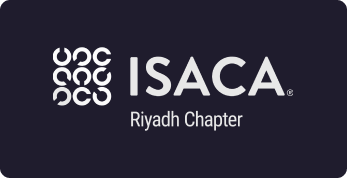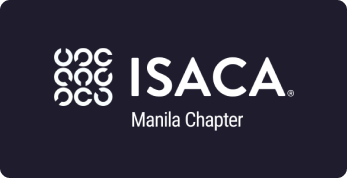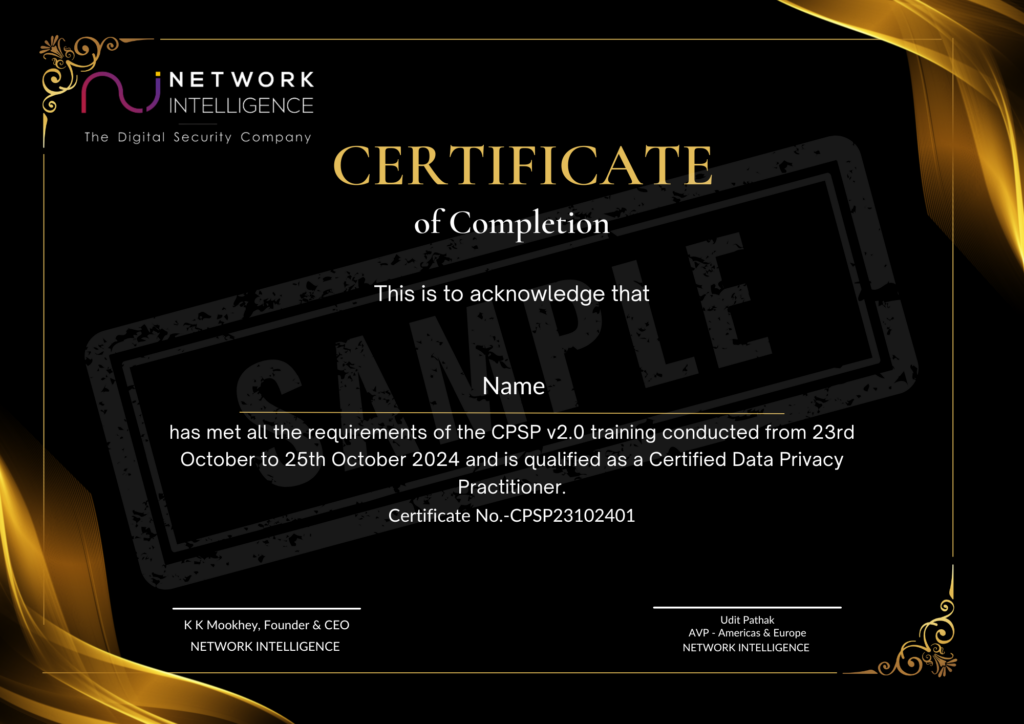Certified Payment Security Practitioner (CPSP v2.0) Training
Master Payment Security with PCI DSS v4.0.1 Expertise
Recent years have seen a sharp rise in digital payments, making payment security a top priority for organizations. Payment systems handle sensitive financial and personal data, making them prime targets for cyberattacks. Breaches in payment systems can result in significant financial losses, regulatory penalties, and damage to organizational reputation.
Certified Payment Security Practitioner (CPSP v2.0) training focuses on imparting knowledge about the complex PCI DSS v4.0.1 standard, enabling participants to contribute effectively to their organization’s goal of securing payment infrastructures. This not only ensures regulatory compliance but also fosters customer confidence by safeguarding sensitive payment data.
At Network Intelligence, we are conducting the Certified Payment Security Practitioner (CPSP v2.0) training, a 12-hour online program delivered over 3 days with 4-hour sessions each. This training covers critical aspects of payment security, including PCI DSS v4.0.1, secure encryption practices, tokenization, and advanced fraud detection techniques.
The training’s objective is to equip participants with practical insights into protecting payment systems through real-world scenarios and case studies, helping them mitigate risks and achieve compliance with global payment security standards.
Training Details
Americas & Europe
Date: 30 June – 2 July 2025
Timing: 1:00 PM – 5:00 PM GMT
9:00 AM – 1:00 PM EDT
Fees
$ 79
ISACA/ ISC2 Member
Fees
$ 99
Regular Participants
- Mode: Online through Microsoft Teams
- Region: Americas & Europe
Asia & Middle East
Date: 23 – 25 June, 2025
Timing: 6:00 AM – 10:00 AM GMT
Fees
$ 79
ISACA/ ISC2 Member
Fees
$ 99
Regular Participants
- Mode: Online through Microsoft Teams
- Region: Asia & Middle East
Rest of World
Date: 23 – 25 June, 2025
Timing: 6:00 AM – 10:00 AM GMT
Fees
$ 79
ISACA/ ISC2 Member
Fees
$ 99
Regular Participants
- Mode: Online through Microsoft Teams
- Region: Rest of world
Objectives of the Program

Building a framework for securing payment card data

Guidance to professionals for protecting customer data

To learn the intricacies of the comprehensive PCI DSS standard

Going beyond the traditional checklist-based approach for security

Taking a risk-based approach to implementing security controls

Winning end customer’s trust
Training Supported and Endorsed by ISACA


Know your Trainers

Udit brings over 12 years of expertise in information security, audits, and training. He has conducted PCI DSS audits, ISO 27001 implementations, vulnerability assessments, secure code reviews, HIPAA audits, SOC maturity assessments, and more. Udit has also delivered and developed training programs like CPSP, CDPP, CPFA, and CAISP, ensuring they align with industry standards and address evolving cybersecurity needs.
Udit Pathak
AVP- Americas & Europe Network Intelligence
Certification Curriculum
Part 1
- Basics of Payment Ecosystem: Card Data (Track data, EMV Chip),
- Entities involved
- Payment Transaction flow: Issuing and Acquiring
- (Card Present and Card Not Present Transactions)
- Stages of Payment Processing: Authentication, Authorization, Clearing, Settlement, Chargeback, Refund, etc.
- Various Payment Channels: ATM, POS, Ecom, Mobile App, MOTO, NFC, or Contactless
- PCI Perspective on architecture: Good and Bad: Inhouse Arch.
- Third-party Cloud Architecture, Virtualization
- What is PCI DSS v4.0?
- Who is PCI SSC?
- Responsibilities of various entities: PCI SSC, PCI QSAs, PCI ASVs, etc.
Part 2
- Overview PCI DSS v4.0: 6 objectives and 12 Requirements
- Overview of PA – DSS, PCI SSF
- Overview of PCI PTS
- Overview of PCI P2PE
- Integration Model for Various PCI Standards
- PCI DSS v4.0 Scoping and Network Segmentation
- Scoping vs Sampling: What is what?
- PCI DSS v4.0 and ISO 27001: A Comparison
- PCI DSS v 3.2.1 VS v4.0
- PCI DSS v4.0 timelines
Part 3
- Implementing PCI DSS v4.0 Requirements: Detailed discussion on each requirement and sub-requirement of PCI DSS v4.0
- QSA Perspective for each PCI DSS requirement and Best Practices
- PCI DSS v4.0 Using Open-Source tools: Suggestion on available tools to meet PCI DSS v4.0 requirements
- Appendix A1 and A2
- Designated entities supplemental validation (DESV)
- Overview and implementation practices of Compensating Controls
- Customized Approach
Part 4
- Annual PCI DSS v4.0 Compliance
- Management: The PCI DSS v4.0 Calendar
- An Approach to Handle suspected card data breach
- PCI DSS v4.0 Resources and Knowledge Library
- What to look for in a PCI QSA?
Terms and Conditions
Fees, speakers and date are subject to change.
Any cancellations received within the last ten calendar days would be liable for 50% of the course fees.
Registered attendees unable to attend may send replacements with one week’s notice; refunds are not permitted.
Sample Certificate
